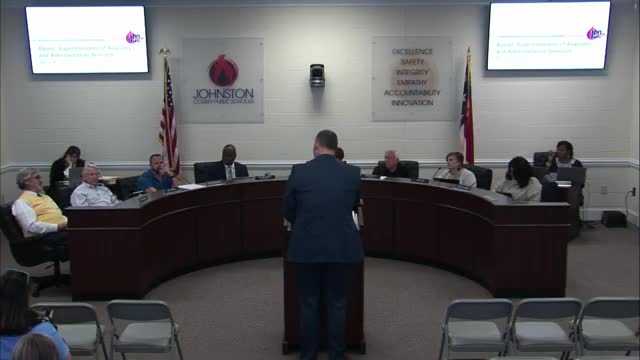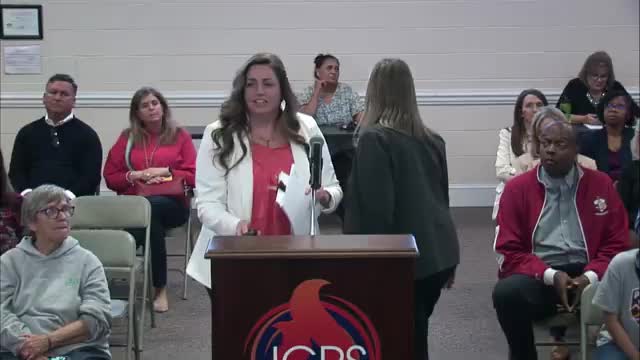Article not found
This article is no longer available. But don't worry—we've gathered other articles that discuss the same topic.

Votes at a glance: Johnston County Board approves curricula, construction design, HVAC contracts and personnel actions

Johnston County adopts new K–12 science and ELA curricula; staggered timelines, teacher supports planned

